| | In this edition: Expected new US ambassador to S. Africa backs false genocide claims, Nigeria’s bank͏ ͏ ͏ ͏ ͏ ͏ |
| |  | Africa |  |
| |
|
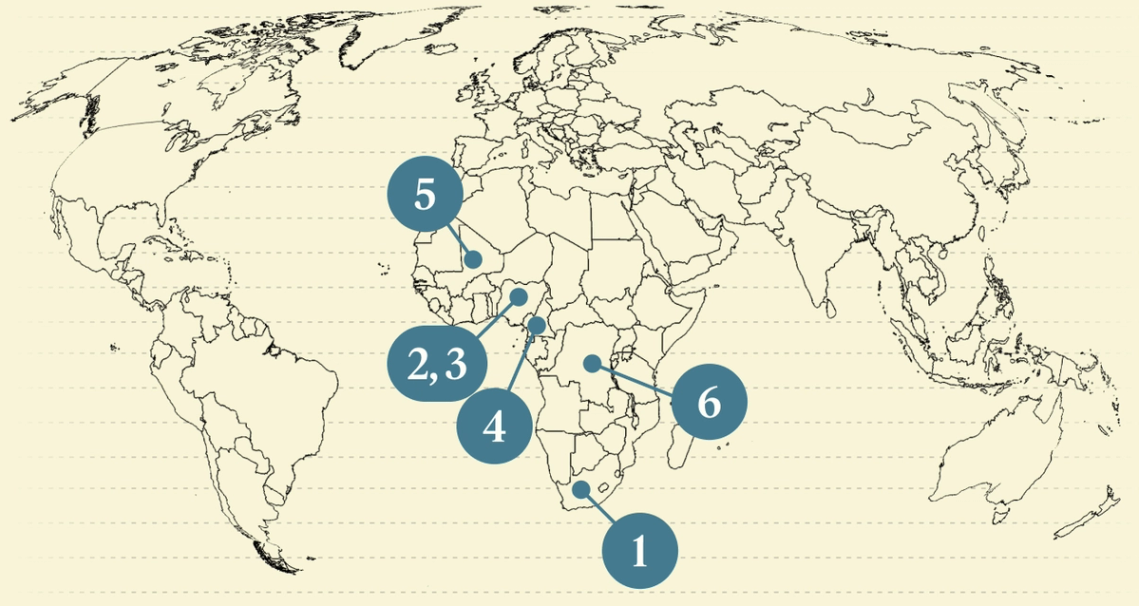 - ‘Genocide’ row in US Senate
- Booming financial inclusion
- Moniepoint’s new funds
- Afreximbank’s new boss
- NBA becomes more African
- Weekend Reads
 A UNESCO project to tell Africa’s history from the continent’s perspective. |
|
Hearing for Trump’s South Africa pick |
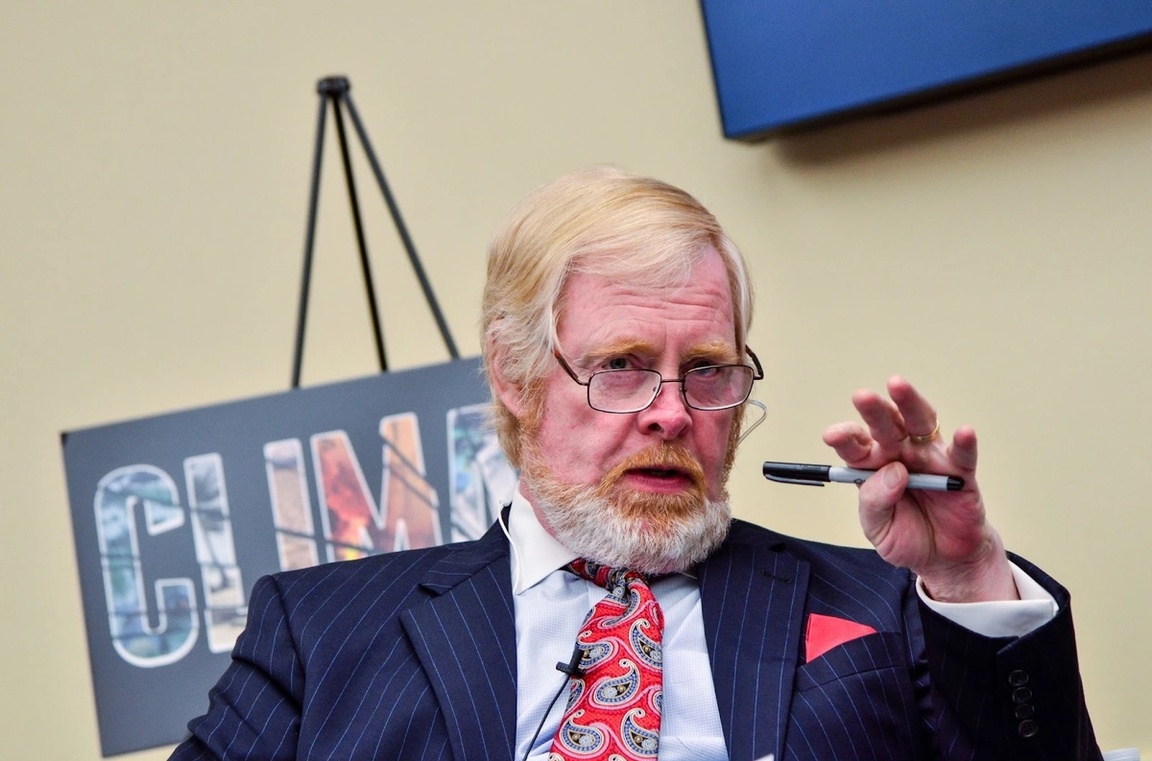 Leo Brent Bozell. Kris Connor/Getty. Leo Brent Bozell. Kris Connor/Getty.US President Donald Trump’s controversial nominee for ambassador to South Africa offered support for disputed claims that thousands of white Afrikaner farmers are under attack in Africa’s most industrialized nation, a row that has come to dominate fraying ties between the two countries. At a Senate confirmation hearing on Thursday, nominee Leo Brent Bozell — a longtime conservative media critic with no diplomatic background — declined to accept Democratic senators’ framing of Trump’s false genocide claims as “legally and morally absurd.” He also refused to directly answer questions suggesting the US should not have a refugee policy based on race: “In South Africa, you have thousands of attacks that have taken place against white farmers,” he said. Washington is reportedly planning to allow 7,000 white Afrikaners into the country, out of a total of just 7,500 refugees this year. The “false narrative” of a genocide from the US has become a major sticking point in ongoing trade talks between Pretoria and Washington, South Africa’s foreign minister said this week. Bozell’s likely confirmation by a Republican-majority senate is expected to become another friction point. In March, Washington expelled Pretoria’s ambassador to the US for criticizing Trump during a webinar, and in May, South African President Cyril Ramaphosa was ambushed by Trump in the Oval Office with claims of “white genocide.” — Yinka Adegoke |
|
Financial inclusion grows in Nigeria |
| | 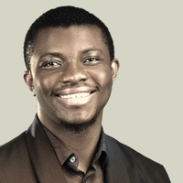 | Alexander Onukwue |
| |
 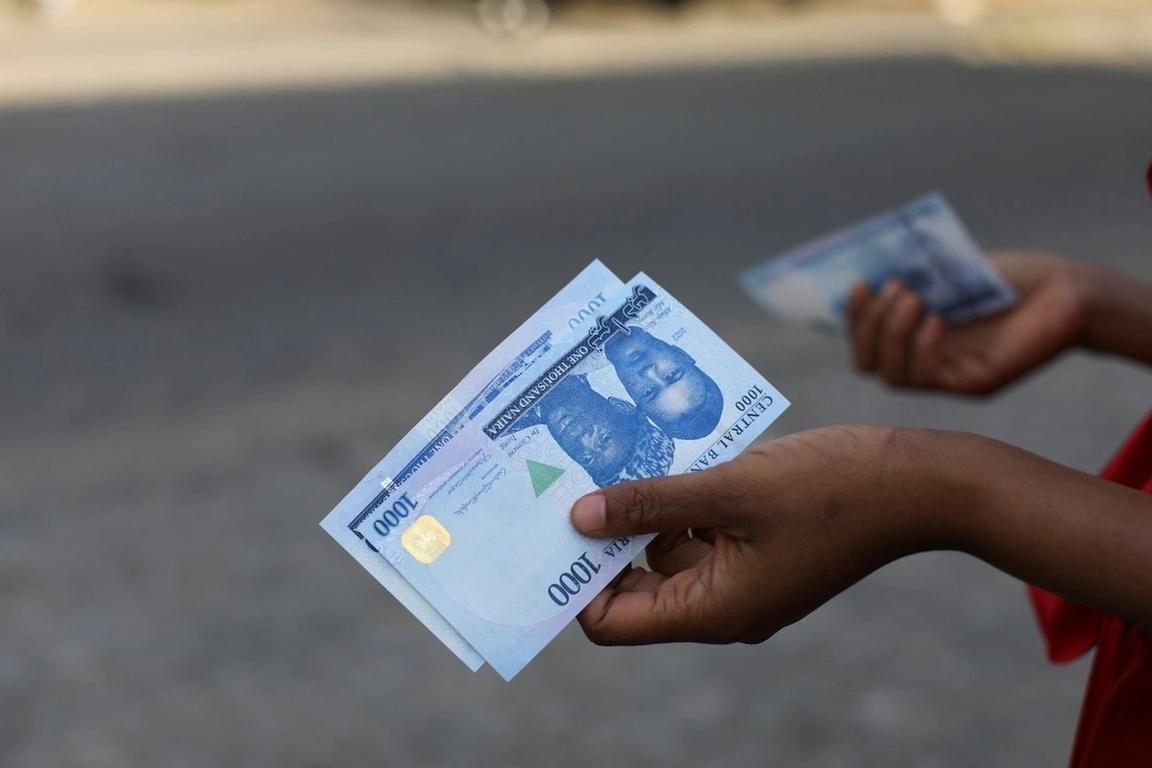 Afolabi Sotunde/Reuters Afolabi Sotunde/ReutersNigeria’s push to bring all citizens into the formal financial system has expanded the country’s ability to mobilize domestic capital in order to fund development projects, its deputy finance minister told Semafor. African countries often struggle to raise domestic funding for investments due to low savings rates and limited tax revenue, forcing a search for external funding from international credit markets, usually at high interest rates. But increased internet access and smartphone availability have helped to spur a decade-long boom in financial inclusion in Nigeria, with 64% of the adult population now having access to bank or non-bank accounts, compared to less than a quarter in 2008. Nigeria’s central bank developed a formal financial inclusion roadmap in 2012, with a goal of enabling 80% of the population to own bank accounts and transact through formal channels by 2020. While that target has not yet been met, the emergence of digital banking apps such as OPay, PalmPay, and Moniepoint — whose systems proved more effective than those of traditional banks during a disruptive cash crunch two years ago — provided visceral evidence of progress, Doris Uzoka-Anite, Nigeria’s minister of state for finance, said at Semafor’s Next 3 Billion event in Abuja on Wednesday.
|
|
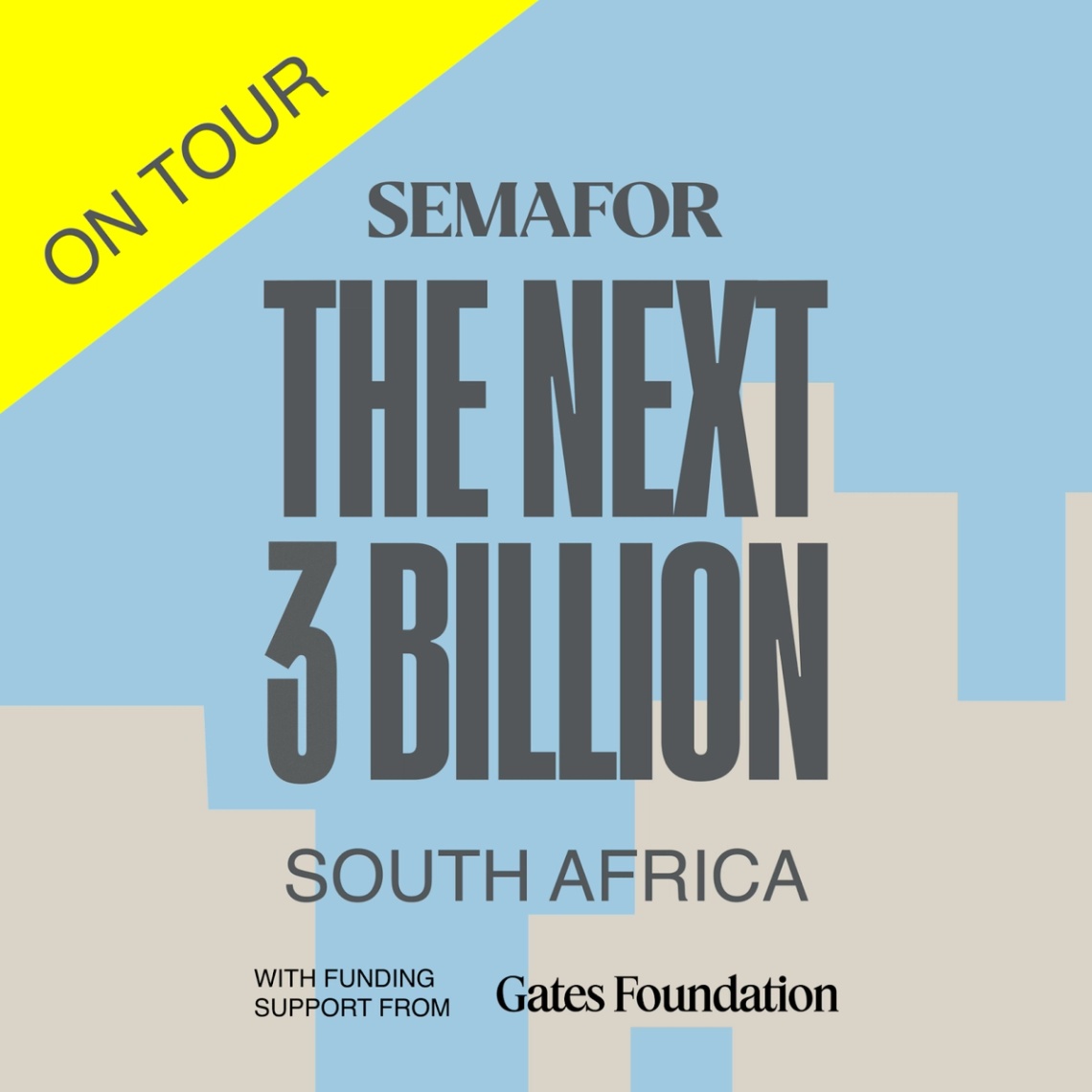 As one of Africa’s most industrialized economies and a G20 member, South Africa plays a pivotal role in advancing digital and financial inclusion across the region. With a strong financial infrastructure and growing global influence through the B20 and G20, the country is well-positioned to drive the next wave of innovation and access. Join Semafor in Johannesburg for The Next 3 Billion Tour, as we examine how South Africa’s leadership can help scale inclusive solutions across borders — from interoperable digital payments and cross-regional investment to expanding connectivity. Nov. 18 | Johannesburg | Request Invite |
|
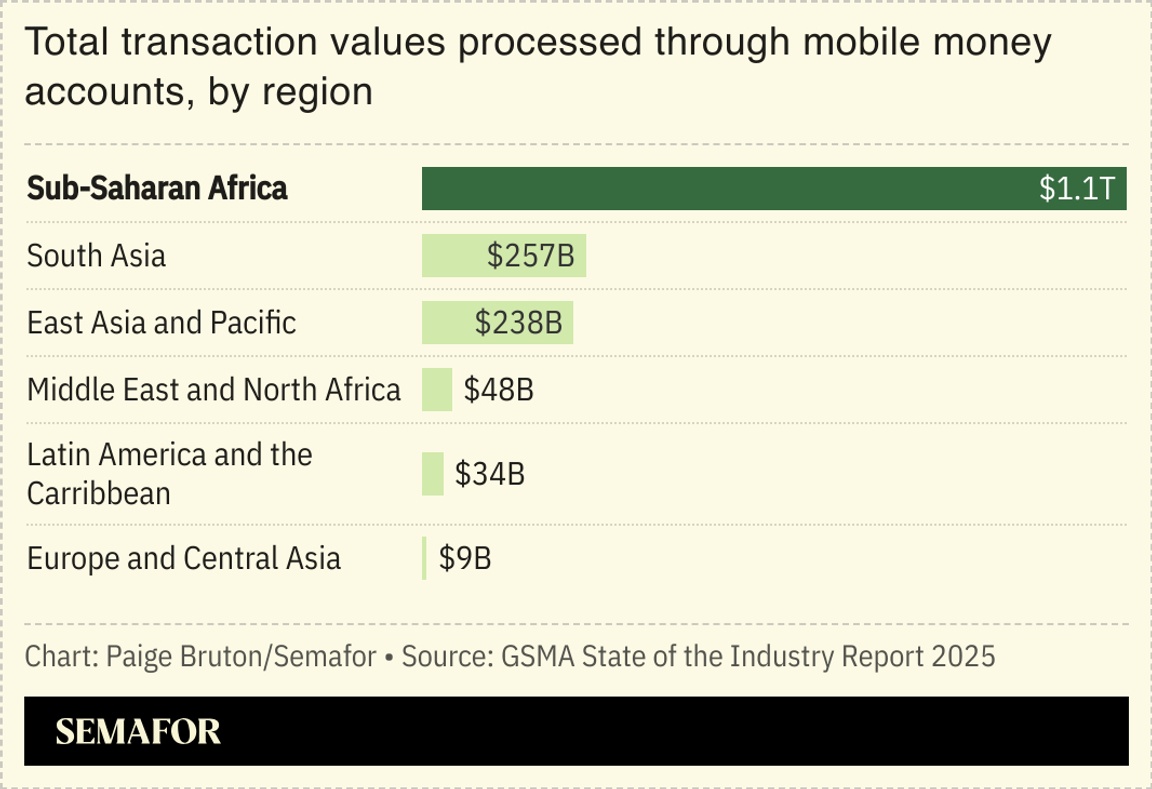 Nigerian payments and digital banking provider Moniepoint raised $90 million this week in one of the largest venture hauls by an African company this year. The new funds complete a $200 million Series C funding round that began last year that saw investors value Moniepoint at around $1 billion. In just five years, Moniepoint’s handheld point-of-sale devices have become ubiquitous in kiosks, restaurants, and malls across the country, enabling cash deposits and withdrawals, as well as card payments. Combined with a personal banking app, its products have been used by more than 10 million businesses and individuals in Nigeria, with more than $250 billion in digital payments transaction value processed annually, it said. The company expanded in April by offering cross-border remittances, beginning with the UK-Nigeria corridor. This latest raise underscores fintech’s dominance in African tech funding, with the sector taking up a third of 2025’s $2.2 billion total so far, according to Africa: The Big Deal, a funding tracker. — Alexander |
|
Person of Interest: Afreximbank’s boss |
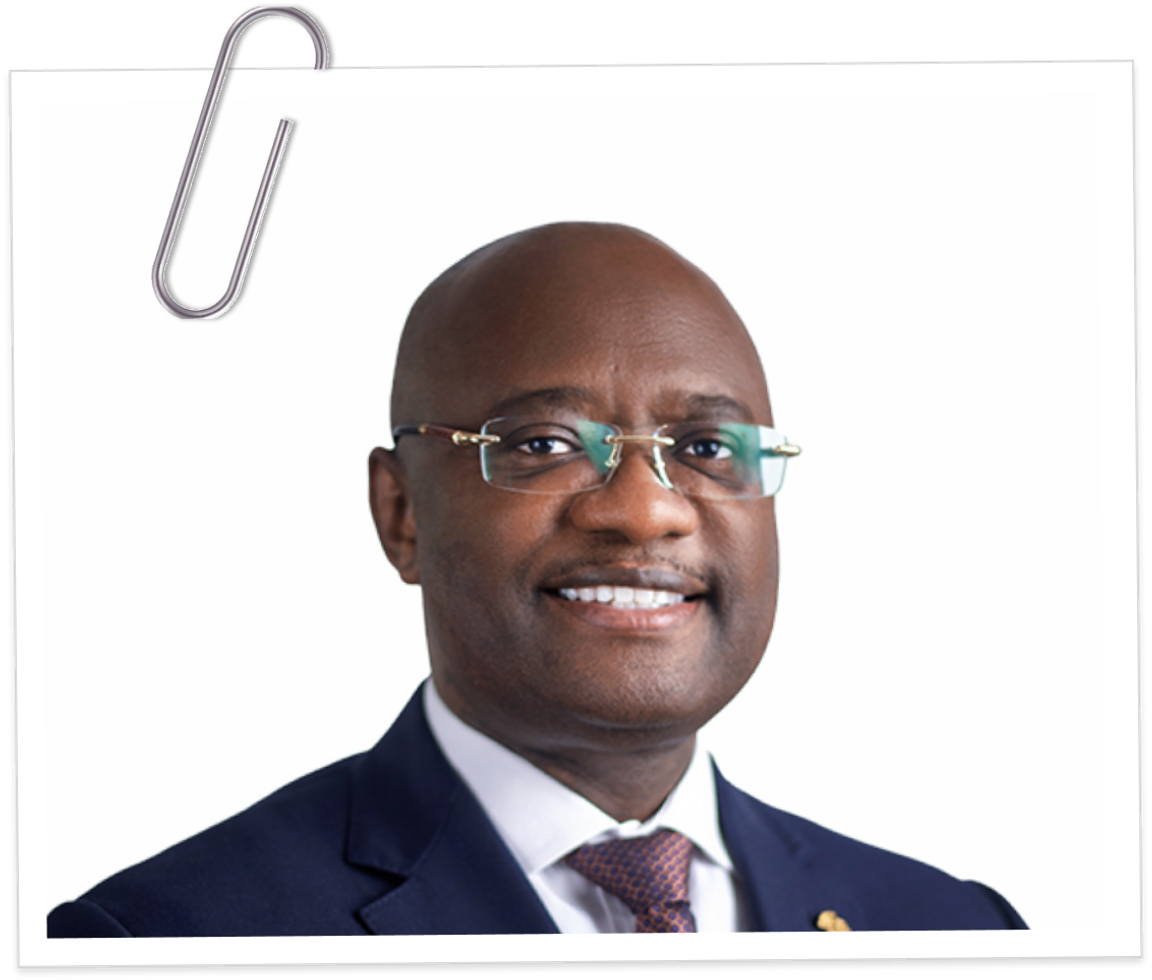 Courtesy of Afreximbank Courtesy of AfreximbankThe African Export-Import Bank’s (Afreximbank) new President George Elombi will be sworn in on Saturday, heralding a new era at the trade finance institution after a decade that saw rapid growth but which nevertheless invited increased scrutiny. A Cameroonian lawyer who has been at Afreximbank since 1996, Elombi was formerly the most senior executive for governance and legal services. He becomes the bank’s fourth president. Elombi said the bank’s mandate is to change the structure of African trade “so that we can face development head on,” in his first comments after being appointed in June. He credited his predecessor for taking on that task “very boldly” in his tenure, pledging to stay on the mission. But given a wave of recent concern about the bank’s lending approach — evidenced by two ratings downgrades by Fitch and Moody’s this year — the change of guard holds the potential for shaping Afreximbank in Elombi’s image. — Alexander |
|
Record number of Africans in NBA |
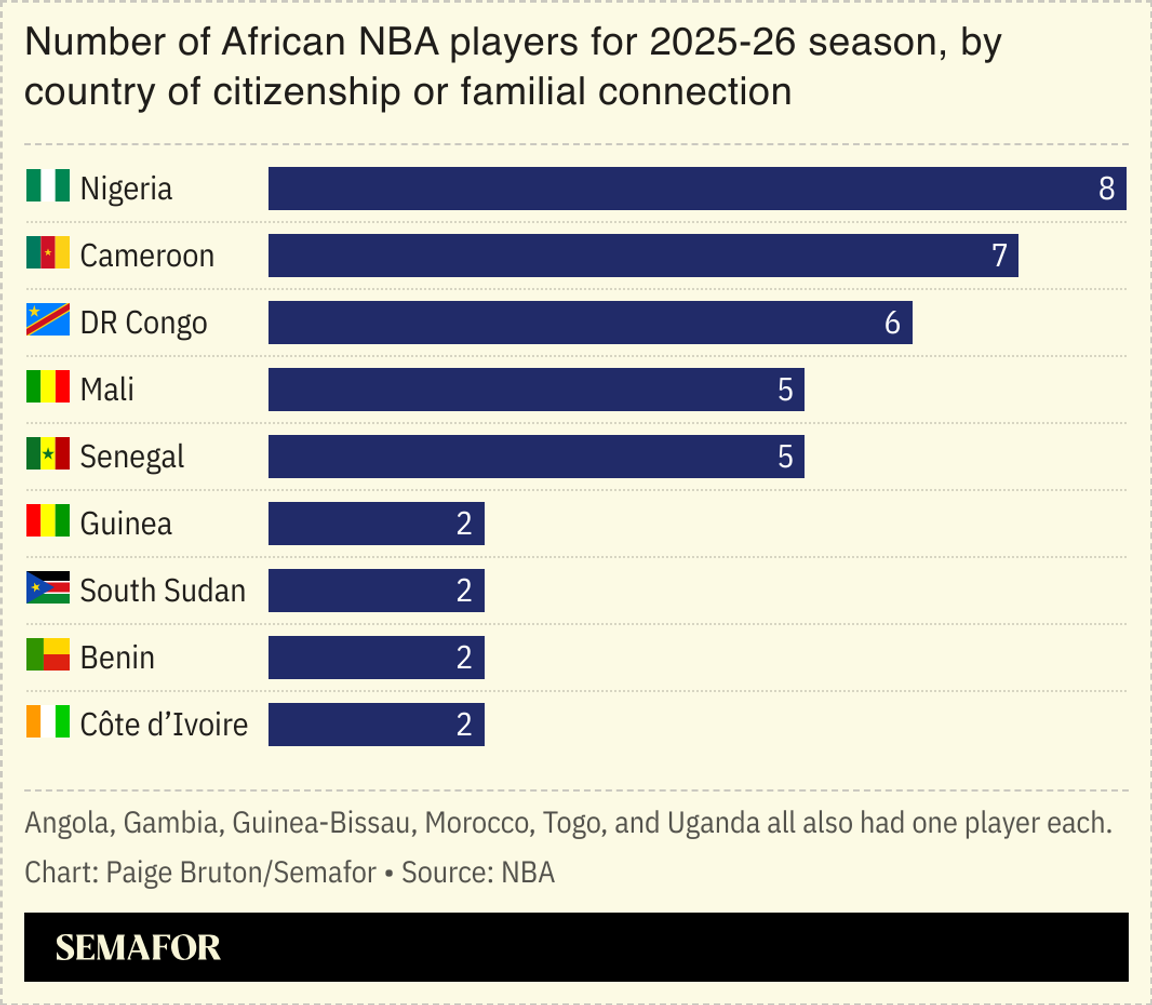 A record 55 of 135 international players competing in the new NBA season, which opened this week, are from the African continent or are first-generation members of the diaspora. The success of African athletes in basketball coincides with heavy investment in the continent: In 2019, the NBA and the sport’s international governing body, FIBA, launched the Basketball Africa League, whose development program has helped produce players such as South Sudan’s Khaman Maluach, who was the number 10 pick in this year’s draft. The NBA also announced last month it aims to franchise the league across the continent, “allowing it to locate teams in the most promising markets to maximise revenues and smooth the player pathway between Africa and the NBA,” SportsPro wrote. As the game becomes more international, the NBA hopes that its audience will follow with rising engagement on social media and streaming platforms. — Paige Bruton |
|
 - African countries must set the rules as China and the US race to access their critical minerals, three experts write in The Conversation. These deposits, crucial for advances in renewable energy and AI, have come to epitomize the struggle between a US-led and a Chinese-led world order, as both nations fight for control over mineral supply chains. Africa must chart its own path and develop national strategies to leverage its power and avoid another “resource curse,” the researchers argue.
- Senegal’s former President Macky Sall is on a charm offensive as he vies to become the next UN secretary-general once António Guterres’ term finishes at the end of 2026, Le Monde reports. Sall, who served two terms as Senegal’s president from 2012 to 2024, has not once returned to Senegal in 18 months and instead has been on a series of global speaking engagements. Last month, he launched his new book, Africa: Leading from the Heart, in New York, on the sidelines of the UN General Assembly. But his path to the UN’s top job faces significant hurdles, with one UN official describing his chances as likely as “walking on water.”
- A farm near the Kenyan capital of Nairobi is offering an unusual alternative building material that could be used for low-cost, sustainable housing: mushrooms. By combining the roots with natural fibers and agents, the resulting panels can be used for roof construction and wall insulation and cost around a third less than regular bricks and mortar, The Associated Press writes. In a city like Nairobi, which is facing a significant housing crisis, mushrooms could offer a solution.
- Former Kenyan Prime Minister Raila Odinga, who died last week, is remembered as a champion of democracy and its ideals, Patrick Gathara writes in a column for The New Humanitarian. However, his reputation conceals a more complex ideology than his moral imperatives suggest. Odinga, who ran for president five times, hinged his vision of the world on his ascendancy to power: “He convinced millions that justice lived on the other side of victory,” Gathara argues. As Kenya is rocked by protests again, Gen Z may be sliding into a familiar mistake: “confusing the capture of power with the creation of change,” Gathara warns.
|
|
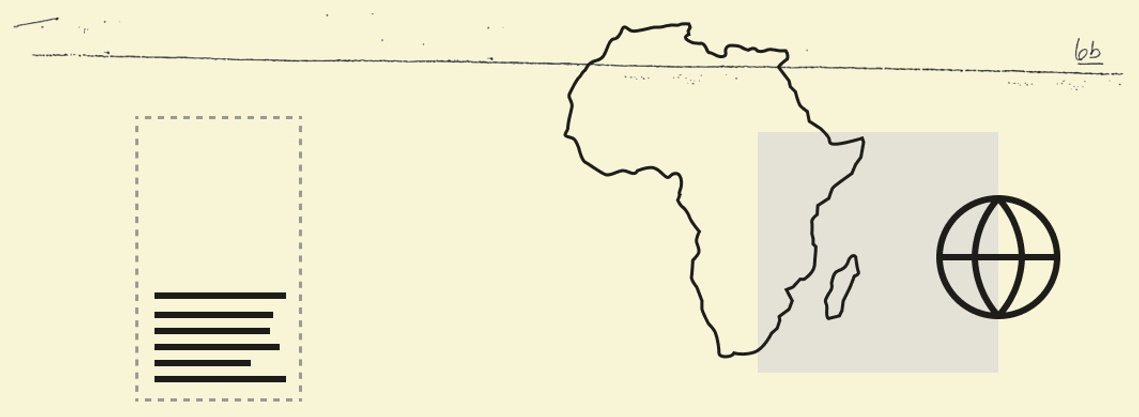 Business & Macro
|
|
|